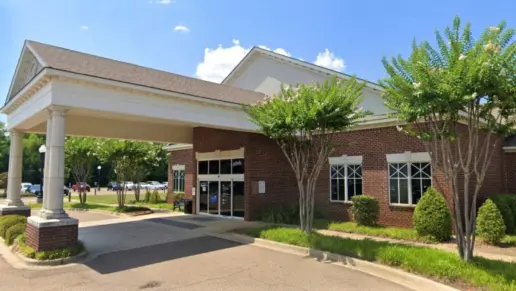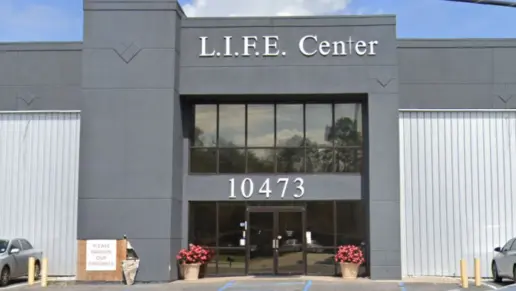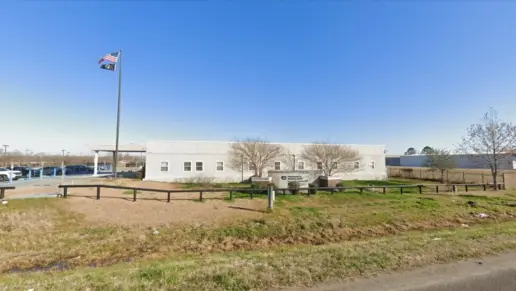Bridge House saved my life, and I will forever be grateful with them. Thanks to them now I'm able to give back a little of what was given to me. I've been clean for one year now, and it has been amazing!!!
About Bridge House
Bridge House is a CARF accredited, residential drug treatment program in New Orleans, Louisiana. They’ve been treating substance use disorder and mental health for more than 65 years. They have long term residential services for men. Because they provide gender sensitive treatment, they have a different house (Grace House) for women. The center’s mission is to offer treatment despite your ability to pay. So, even if you don’t have financial resources, you can still receive treatment.
There are three levels of care offered at the house, beginning with stabilization. According to the American Society of Addiction Medicine (ASAM), stabilization is level 3.3 care. Stabilization requires a minimum of 20 hours per week of services with a heavy emphasis on recovery and medium intensity clinical services.
The first 14 to 30 days of treatment are spent in this intensive stabilization phase of treatment. During that time, you’ll have limited or no contact with anyone outside the house. That way, the staff can assess and observe you to gain insight into your addiction without any outside influences hindering the process.
ASAM 3.1 is primary care that begins after stabilization. You’ll have clinical and recovery focused services at a lower intensity than the initial phase. During this phase of treatment, you’ll focus on applying the skills you’ve learned toward recovery. You’ll learn how to prevent relapse as you improve your emotional function. Personal responsibility is promoted, and you’ll learn how to reintegrate into society and family life.
The driving force behind the programs is Alcoholics Anonymous and the 12 Step model of recovery. They recognize that chemical dependency is a spiritual, social and psychological issue. They use lifestyle therapy to deal with all of the symptoms surrounding the dependency.
The third phase of treatment is the transition and re-entry back to a productive and successful life. This is where you’ll pursue vocational training and possibly education. You’ll work on finding employment.
Previous clients report positive experiences with the staff here. They say the staff are caring and attentive and really want people to succeed in recovery.
Latest Reviews
Rehab Score
Gallery
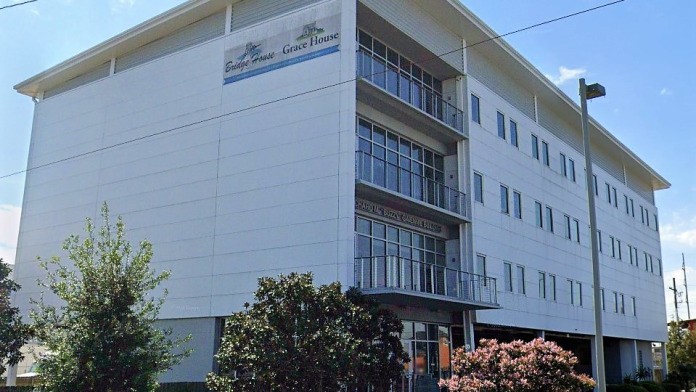
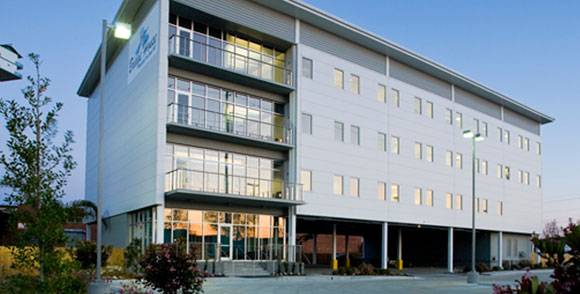
Location
Other Forms of Payment
Private insurance refers to any kind of healthcare coverage that isn't from the state or federal government. This includes individual and family plans offered by an employer or purchased from the Insurance Marketplace. Every plan will have different requirements and out of pocket costs so be sure to get the full details before you start treatment.
Self-pay involves paying for treatment out of your own pocket. You can use savings or credit, get a personal loan, or receive help from family and friends to fund your treatment. If you don't have insurance or your insurance plan doesn't cover a specific program, self-pay can help ensure you still get the care you need.
Financial aid can take many forms. Centers may have grants or scholarships available to clients who meet eligibility requirements. Programs that receive SAMHSA grants may have financial aid available for those who need treatment as well. Grants and scholarships can help you pai for treatment without having to repay.
Medicare is a federal program that provides health insurance for those 65 and older. It also serves people under 65 with chronic and disabling health challenges. To use Medicare for addiction treatment you need to find a program that accepts Medicare and is in network with your plan. Out of pocket costs and preauthorization requirements vary, so always check with your provider.
Medicaid is a state based program that helps lower-income individuals and families pay for healthcare. Medicaid covers addiction treatment so those enrolled can use their coverage to pay for rehab. When a program accepts Medicaid the client often pays very little or nothing out of their own pocket.
Addiction Treatments
Levels of Care
Treatments
The goal of treatment for alcoholism is abstinence. Those with poor social support, poor motivation, or psychiatric disorders tend to relapse within a few years of treatment. For these people, success is measured by longer periods of abstinence, reduced use of alcohol, better health, and improved social functioning. Recovery and Maintenance are usually based on 12 step programs and AA meetings.
While each drug rehab in Louisiana offers unique elements, recovery support often follows a similar pattern. Detox is followed by inpatient and/or outpatient care, then aftercare support is provided once the participant completes the initial program.
Substance rehabs focus on helping individuals recover from substance abuse, including alcohol and drug addiction (both illegal and prescription drugs). They often include the opportunity to engage in both individual as well as group therapy.
Programs


Clinical Services
Group therapy is any therapeutic work that happens in a group (not one-on-one). There are a number of different group therapy modalities, including support groups, experiential therapy, psycho-education, and more. Group therapy involves treatment as well as processing interaction between group members.
In individual therapy, a patient meets one-on-one with a trained psychologist or counselor. Therapy is a pivotal part of effective substance abuse treatment, as it often covers root causes of addiction, including challenges faced by the patient in their social, family, and work/school life.
If you are struggling with motivation to change, motivational interviewing is designed to help. This method typically involves one or two sessions with a therapist. The technique helps you understand your motivations and empowers you to make changes to reach your goals.
Research clearly demonstrates that recovery is far more successful and sustainable when loved ones like family members participate in rehab and substance abuse treatment. Genetic factors may be at play when it comes to drug and alcohol addiction, as well as mental health issues. Family dynamics often play a critical role in addiction triggers, and if properly educated, family members can be a strong source of support when it comes to rehabilitation.
Life skills trainings involve all the skills a person must have in order to function successfully in the world. These include time management, career guidance, money management, and effective communication. Truly successful addiction recovery is based on the ability to not only live substance-free, but to thrive. Life skills teaches the practical necessities of functioning in society, which sets clients up for success in life, and therefore sobriety.
Therapy sessions that involve creative activities are known as creative arts therapy. During this treatment, you'll participate in various art forms, such as music, dance, or drawing, to express yourself. You don't need any artistic skills to benefit.
Amenities
-
Residential Setting
-
Private Rooms
Accreditations

The Commission on Accreditation of Rehabilitation Facilities (CARF) is a non-profit organization that specifically accredits rehab organizations. Founded in 1966, CARF's, mission is to help service providers like rehab facilities maintain high standards of care.
CARF Accreditation: Yes
Contact Information
4150 Earhart Boulevard
New Orleans LA, 70125
